Farmers’ protest ploughs into Westminster
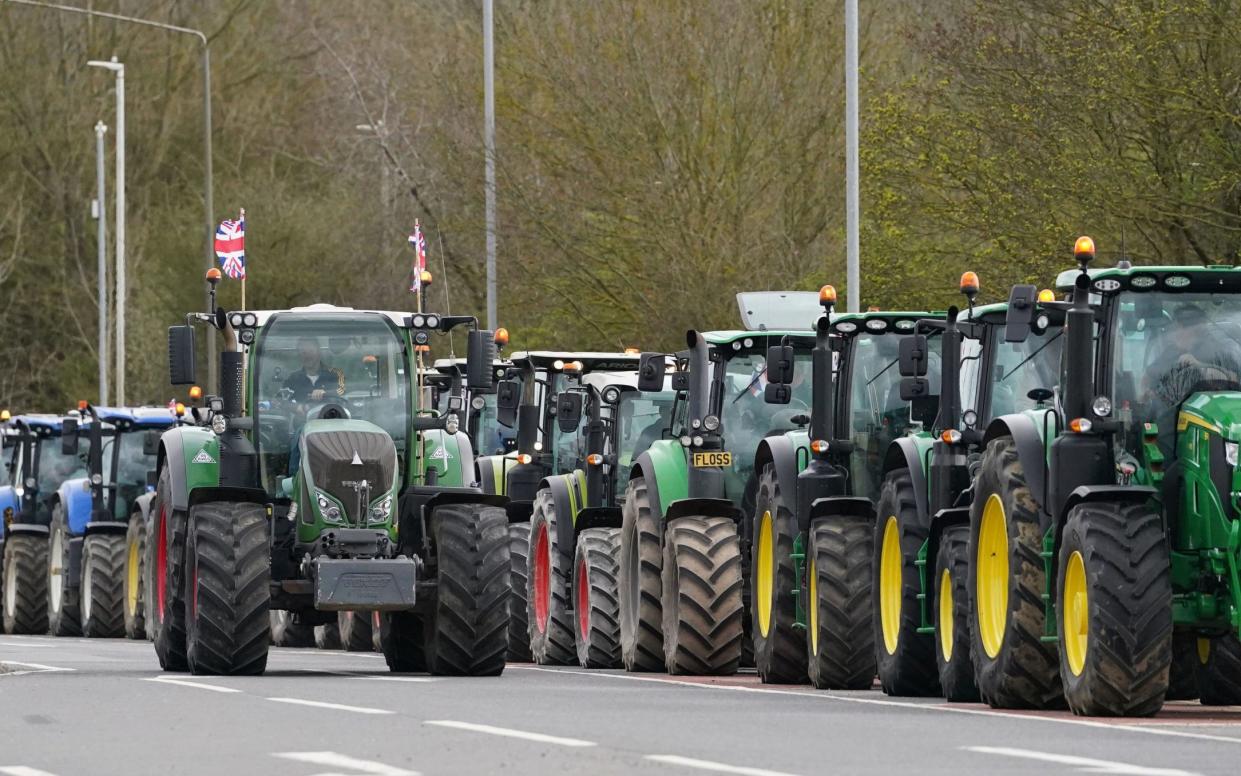
As Andrew Gibson drove his John Deere tractor around the incongruous surroundings of Parliament Square, he summed up the state of British farming in one word: unreal.
The same could have been said for the scene that greeted MPs as they peered out from their offices, as more than 150 farm vehicles, with blindingly bright lights and deafening horns, staged one of the noisiest protests Westminster has witnessed.
Angry about the ruinous effect cheap imports are having on their businesses, the farmers had hoped to bring the capital to a standstill, in the way that French farmers have done in Paris in recent weeks.
What they may not have realised is that in London, traffic crawls along at the speed of a tractor in a country lane, meaning they made little difference to the normal rush hour gridlock.
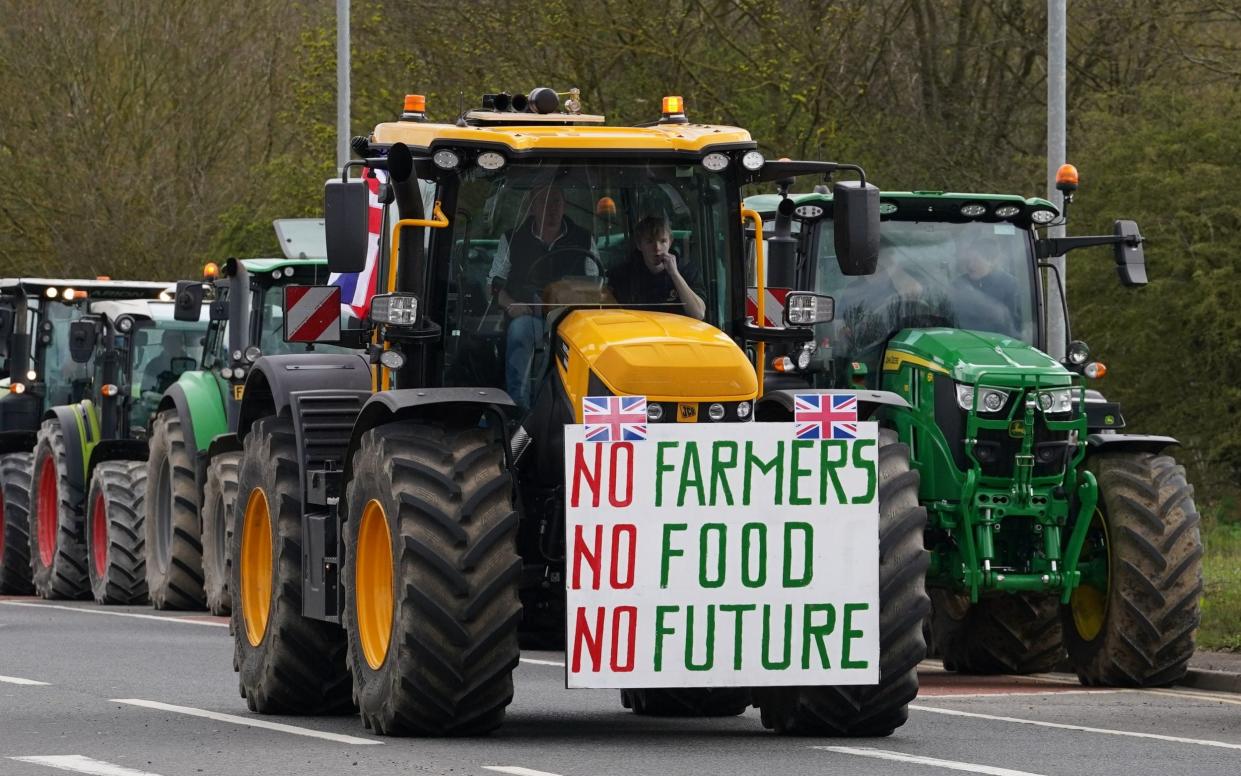
We are also a more law-abiding country than France, so the tractors arrived at 6pm, as dictated by the police, and there was no blockading the roads with hay bales.
Mr Gibson, 43, sportingly allowed me to clamber into the jump seat of his muddy cabin, where he explained why farmers like him have reached the end of their tether.
“Farmers in this country love producing high-quality food for people, we have the highest standards in the world, we’re the best in the world at doing it,” he said. “But doing that is expensive, and instead of supporting British farmers, the Government allows cheap imports, produced using chemicals and methods that are banned here.
“They want us to become low-carbon producers to meet their green targets but they are doing it by offshoring carbon production to other countries. It’s just unreal.”
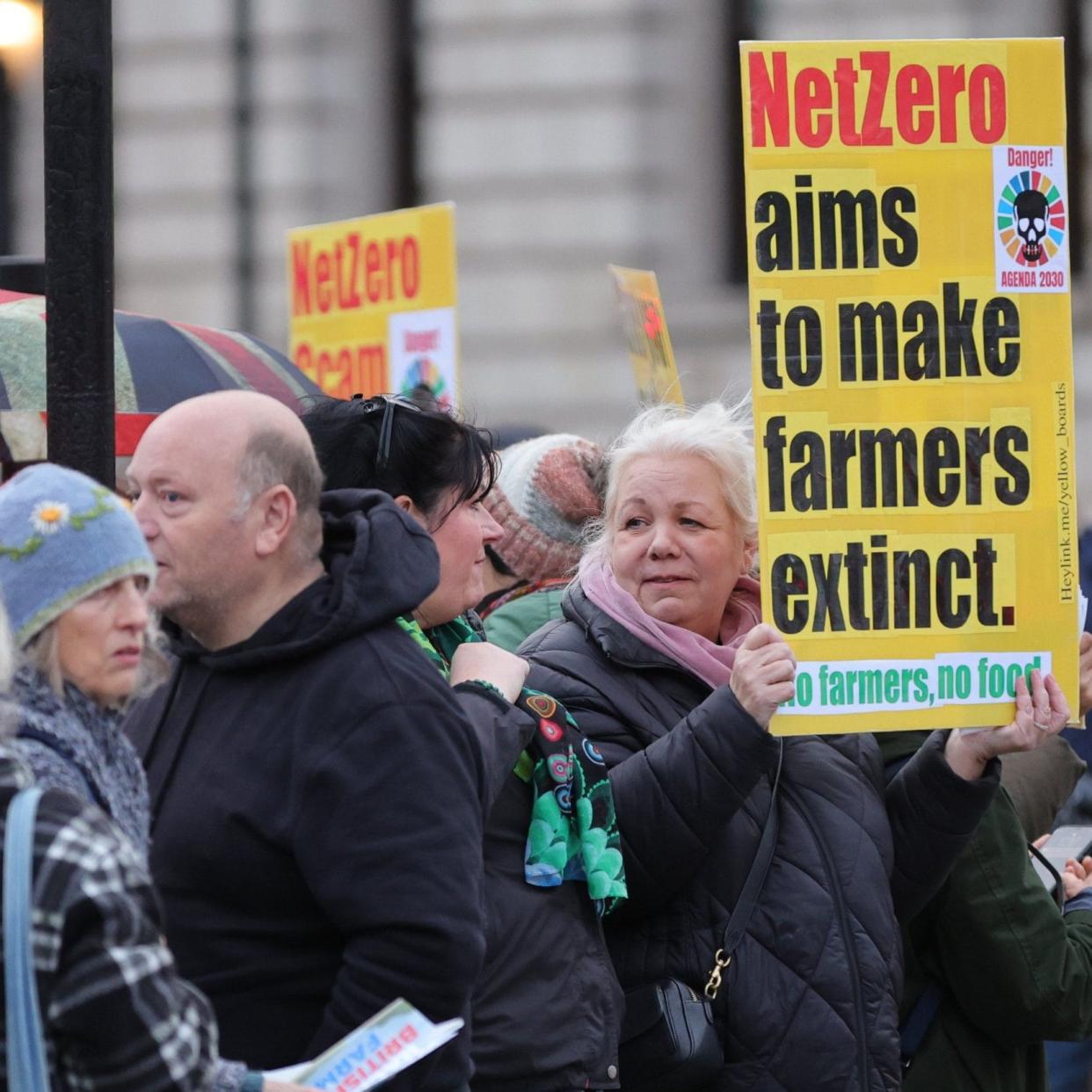
Mr Gibson and his brother Jeff are the fifth generation of their family to farm their 250-acre plot near Canterbury (a four-hour drive away by tractor) but he fears they will be the last.
“We are a mixed farm, with beef cattle, pigs, potatoes, cereals and a farm shop,” he says, “but at the moment we’re selling cereal below the cost of production. We are not asking for subsidies, we just want a level playing field. I work 70 hours a week, six days a week, but if the Government doesn’t clamp down on these cheap imports we are going to go out of business.”
Like many other farmers on the protest, he brings up the fact that the Government is paying farmers to grow wildflowers in highly fertile fields “which isn’t exactly helping food security”.
As we drive down Whitehall we pass people holding placards saying “No Farmers, No Food” and struggle to hold a conversation above the ear-splitting noise of musical air horns that some farmers have bought for the occasion, playing such random tunes as I’m A Barbie Girl, La Cucaracha and Axel F from the film Beverly Hills Cop.
Richard Yeoman, 39, a farm manager from Eastbourne who sensibly took the train to London, tells me the owner of his farm is having to pay him out of his savings because the 100 cattle and 1,500 sheep on the farm are not turning a profit.
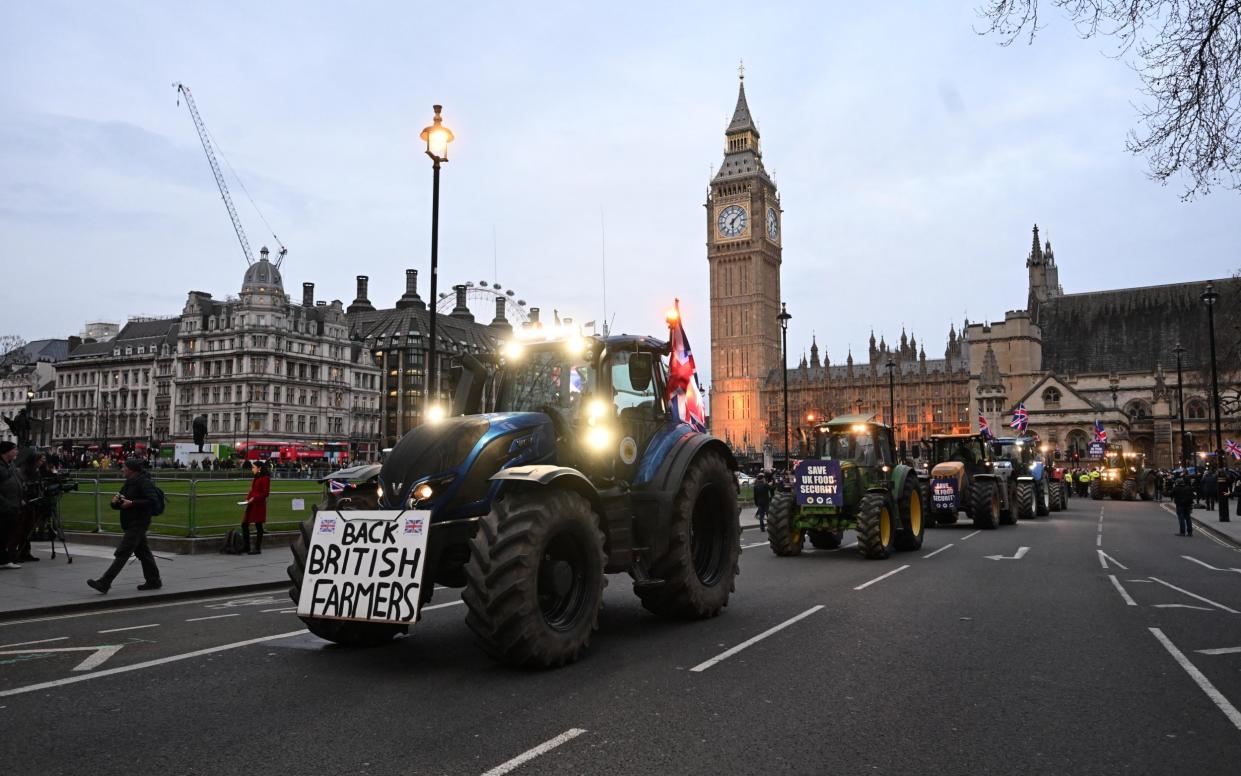
“We are working for nothing,” he says. “My governor is paying me out of his own pocket because he isn’t making any money. The Government said they would help farmers out when we left the EU but they have done nothing. If it carries on, the land will just get sold for housing and that will be it.”
Food security at risk
Steve Bell, 39, who has an organic farm in Hellingly, East Sussex, with 50 beef cattle, just wants the public to appreciate what farmers do and buy British.
“We are organic, we are a regenerative farm, and we try to sell our meat locally,” he says. “We have the means of producing good food here, but we are being undercut by imports because it is more expensive to produce good quality food to the standards that are expected of us. I just want people to understand that, and keep it British.”
Save British Farming and Fairness for Farmers of Kent, which organised the protest, say cheap food imports and unsupportive policies put UK food security at risk.
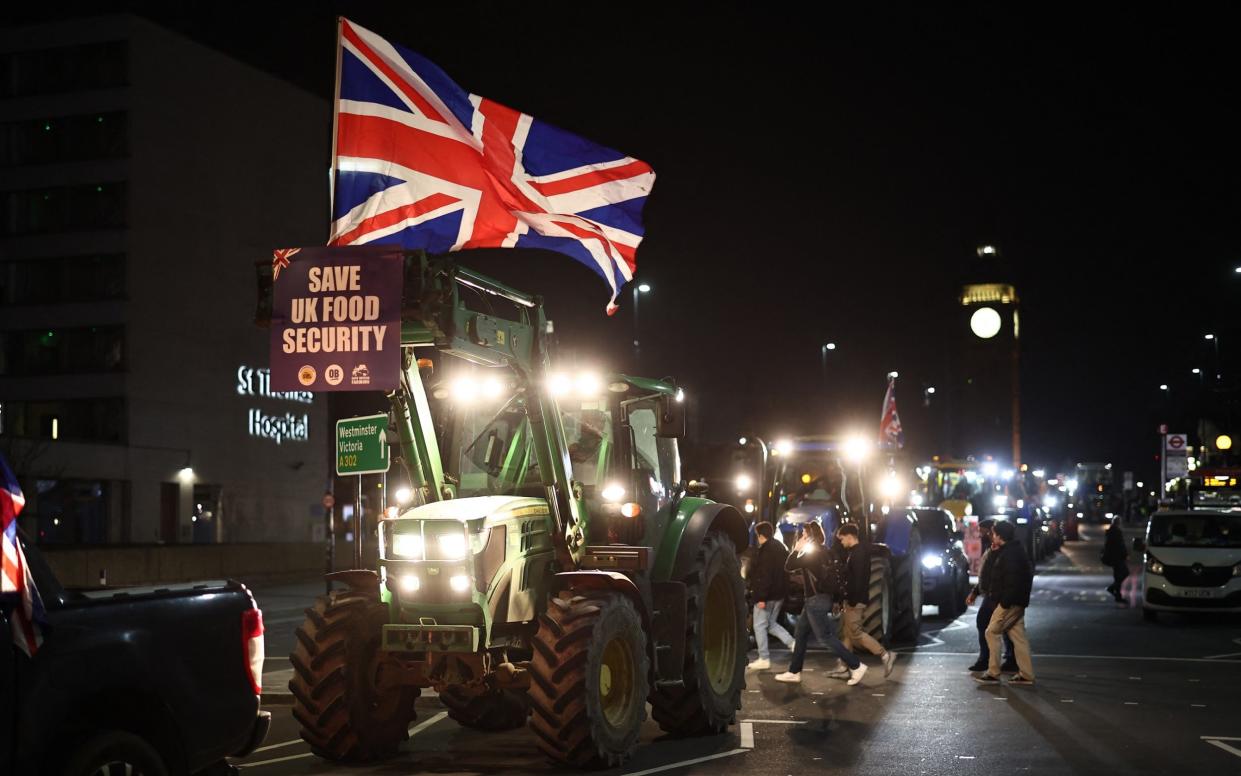
Apart from France, there have been similar protests in Greece, Germany, Portugal, and Poland against European Union regulations and cheap imports.
At last month’s NFU conference, the Prime Minister Rishi Sunak told farmers “I’ve got your back”, as he outlined Government plans to boost the UK’s food security.
But the founder of campaign group Save British Farming, Liz Webster, said: “Polling shows that the public back British farming and food and want to maintain our high food standards and support local producers.
“We need a radical change of policy and an urgent exit from these appalling trade deals which will decimate British food.”


